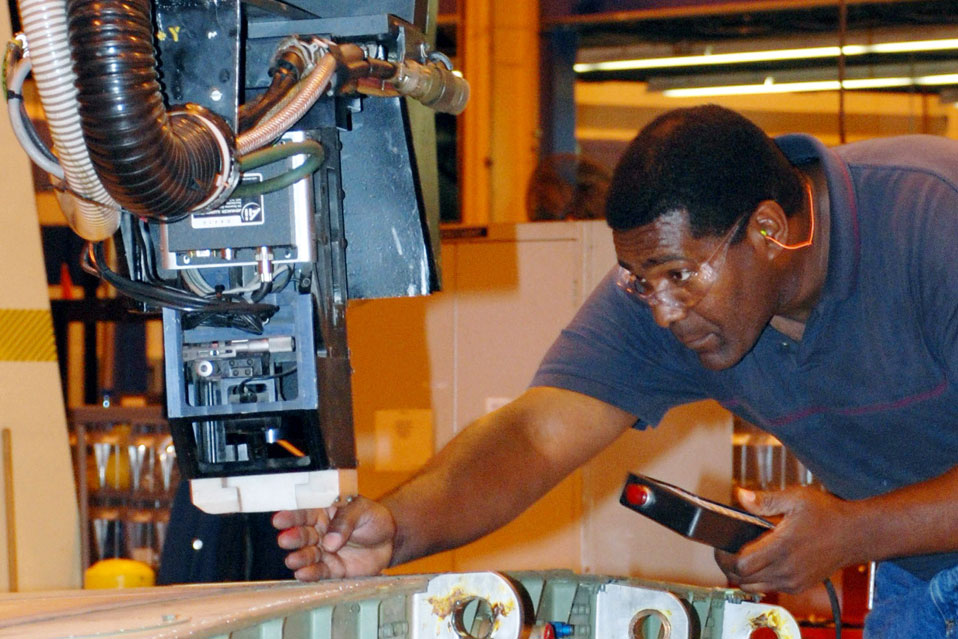Disclaimer: The information on our website is provided for general information purposes only. We make no representations or warranties of any kind, express or implied, about the completeness, accuracy, reliability, suitability or availability with respect to the website or the information contained on our website for any purpose. Any reliance on such information is therefore strictly at your own risk and we are not liable for any damages or losses arising out of or resulting from your reliance on any information contained on our website.
Small engine mechanics work on a variety of motorized power equipment to include motorcycles, chain saws, motorboats, dirt bikes, and other outdoor power equipment. They service and inspect power equipment and diagnose any electrical, mechanical, and fuel system problems and make any necessary repairs. They generally work full time in noisy repair shops and some may need to work at onsite repair calls. Most mechanics use many of their own tools.
Watch a video to learn what a small engine mechanic does:
How to Become a Small Engine Mechanic
A small engine mechanic usually needs a high school diploma or the equivalent. Some gain most of their experience on-the-job, especially motorboat and outdoor power equipment mechanics. Other small engine mechanics attend a trade school to earn a certification. Taking vocational courses in small engine and automobile repair can help you secure a position in this career. O*NET OnLine reports that almost 50% of the small engine mechanics surveyed held a high school diploma or equivalent while almost 30% had attended some college but had not yet earned a degree.
Employers also send new hires to training courses for continuous education that relate to the type of product they repair, such as motorcycle, motorboat, and outdoor power equipment. Though having a certification is not required, employers may prefer applicants that demonstrate their knowledge and this may lead to a higher salary. Motorcycle mechanics typically need a valid drivers license with a motorcycle endorsement.
Job Description of a Small Engine Mechanic
A small engine mechanic typically diagnoses and repairs their customer’s equipment problems at a mechanic shop. They provide routine maintenance as well. such as replacing spark plugs and lubricating parts. These mechanics may also repair or replace worn, broken, or defective parts and recommend when a part should be replaced as well. After the repairs are made, they reassemble and reinstall all components. Mechanics use computerized equipment for tuning motorboats and/or motorcycles and also use a variety of hand tools.
Free Teacher and Student Resources
Brad Schott from Lexington, NE posted a pdf onto the National Association of Agricultural Educator’s site titled free small engine lesson plan (link opens in a new tab). The lesson plan covers the complete tear-down and rebuild process.
Small Engine Mechanic Career Video Transcript
Mechanical know-how, hand-eye coordination, and the ability to diagnose engine problems are some of the important qualities held by small engine mechanics. These workers inspect, service, and repair motorized power equipment— usually specializing in one type, such as motorcycles, motorboats, or outdoor power equipment. The repairs they work on can range greatly in complexity— from replacing a single part to rebuilding an engine. They work on all types of problems— fuel system, mechanical, and electrical. Small engine mechanics use both computerized and pneumatic equipment, and also a variety of hand tools— which they usually own themselves.
Small engine mechanics generally work in well-ventilated but noisy repair shops— from marina docks to the back of a hardware store. When breakdowns happen, they may make onsite repair calls in all kinds of weather. Although most work full time, spring and summer are the busiest work seasons for these mechanics, and many work overtime to keep up with demand. Winter work hours may be shorter. Employers include motorcycle, boat, and other motor vehicle dealers, lawn and garden equipment stores, and household goods repair and maintenance services. Small engine mechanics usually have a high school diploma or certificate and develop their skills through on-the-job training. It takes mechanics anywhere from several months to several years to become fully proficient. Employers increasingly prefer to hire mechanics with technical training.
Article Citations
Bureau of Labor Statistics, U.S. Department of Labor, Occupational Outlook Handbook, Small Engine Mechanics.
National Center for O*NET Development. 49-3053.00. O*NET OnLine. This page includes information from O*NET OnLine by the U.S. Department of Labor, Employment and Training Administration (USDOL/ETA). Used under the CC BY 4.0 license. O*NET® is a trademark of USDOL/ETA. RethinkOldSchool, Inc. has modified all or some of this information. USDOL/ETA has not approved, endorsed, or tested these modifications.
The career video is in the public domain from the U. S. Department of Labor, Employment and Training Administration.

